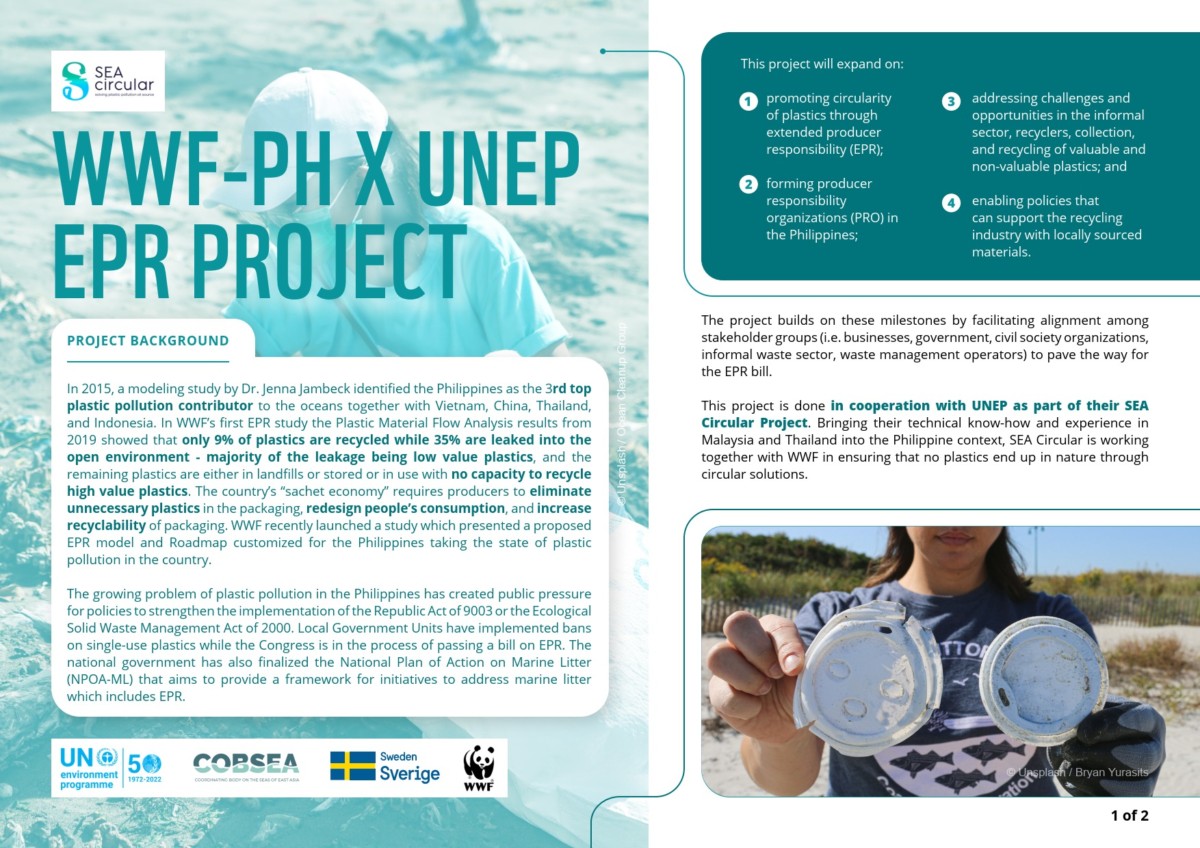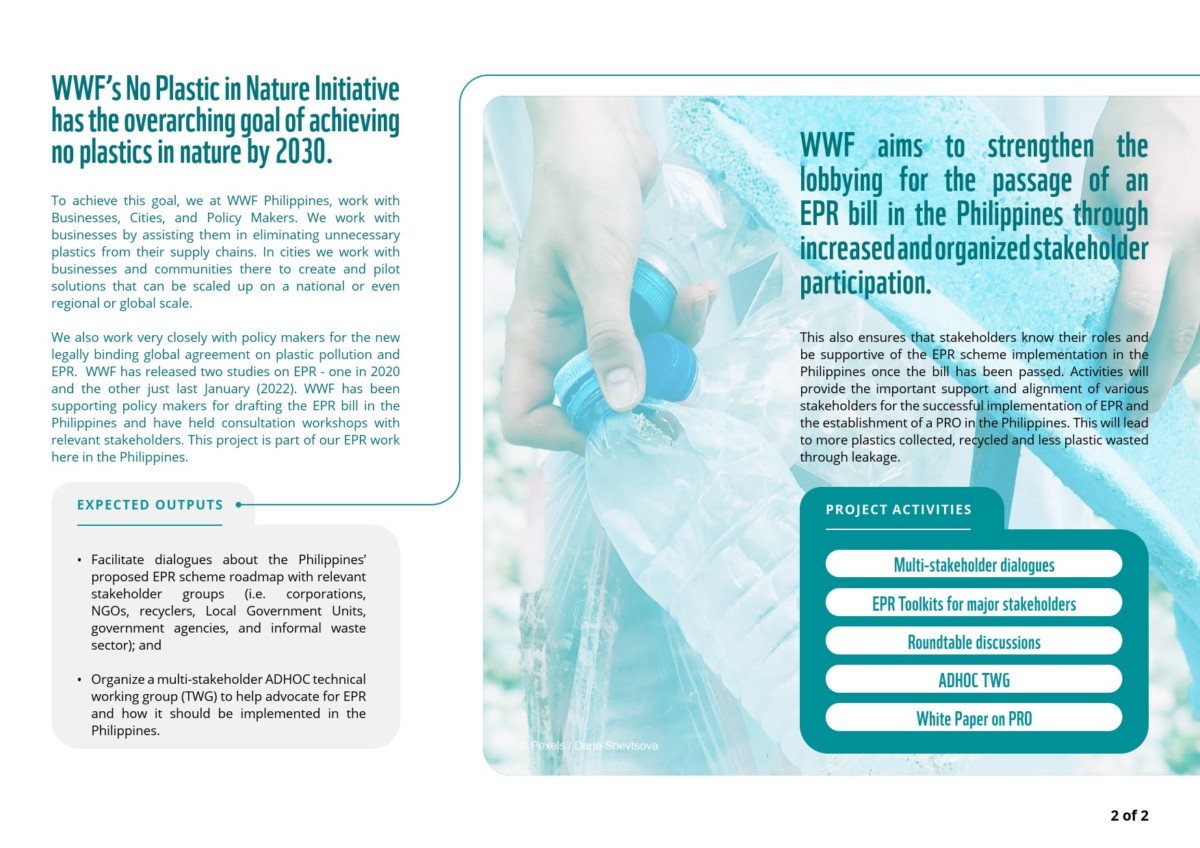WWF Continues Its Work on Extended Producer Responsibility (EPR) with UNEP Sea Circular
Plastic is an ever-growing problem in the Philippines and, in 2015, the country was identified as the 3rd top plastic pollution contributor to the oceans together with neighboring Vietnam, China, Thailand, and Indonesia. Current recycling facilities and capabilities are not enough to stem the flow of waste that goes into the oceans as a WWF study in 2019 found that only 9% of plastics are recycled while 35% are leaked into the open environment.
There are lost opportunities in the high-value plastics that have the potential to be recycled but still end up in landfills. Low-value plastics, a product of the Philippines’ “sachet economy,” is a majority (60%) of Filipinos’ plastic consumption and is a large part of the waste that goes to landfills and the environment.
In order to help solve this problem, WWF-Philippines just released a study in January 2022 which presented a customized detailed EPR scheme for the Philippines with an accompanying roadmap for stakeholders involved in the scheme.
WWF-Philippines is bringing together businesses, government, civil society organizations, informal waste sector, and waste management operators to put into place a preliminary Extended Producer Responsibility (EPR) system based on the newly-released study that will take care of all plastic materials from beginning to end and also to gather support for the passing of an EPR bill in Congress.
This project is an initiative of the UN Environment Programme's SEA circular project, funded by the Government of Sweden, with the aim of:
- promoting circularity of plastics through extended producer responsibility
- the formation of producer responsibility organizations in the Philippines
- addressing challenges and opportunities in the informal sector, recyclers, collection, and recycling of valuable and non-valuable plastics
- enabling policies that can support the recycling industry with locally-sourced materials
SEA circular brings their technical know-how and experience in Malaysia and Thailand into the Philippine context. WWF and SEA circular are working together in ensuring that no plastics end up in nature through circular solutions. WWF’s No Plastic in Nature Initiative wants to completely stop plastic waste going into the environment by 2030 through collaborations with businesses that will help them eliminate unnecessary plastics from their supply chains. WWF also looks at working with communities to create and pilot solutions that can be scaled up on a national or even regional or global scale.
The outputs for this project include:
- Dialogues about the Philippines’ proposed EPR scheme roadmap with relevant stakeholder groups (i.e. corporations, NGOs, recyclers, Local Government Units, government agencies, and informal waste sector).
- WWF aims to organize a multi-stakeholder ADHOC technical working group (TWG) to help advocate for EPR and how it should be implemented in the Philippines.
The activities that will be conducted in this project include multi-stakeholder dialogues, production of EPR Toolkits for major stakeholders, roundtable discussions, an ADHOC TWG, and a white paper on the establishment of producer responsibility organizations (PRO).
By bringing together everyone involved in the plastics ecosystem and making sure they all know the roles they play in the reduction of plastic wastes, the EPR scheme can be successfully implemented and producer responsibility organizations can be established. Local Government Units have already implemented bans on single-use plastics while the Congress is in the process of passing a bill on EPR. These measures will lead to more plastics collected, recycled and less plastic wasted through leakage.
This project is part of the EPR initiative by the SEA circular project which is implemented together by the UN Environment Programme and The Coordinating Body on the Seas of East Asia (COBSEA). The project is funded by the government of Sweden.


